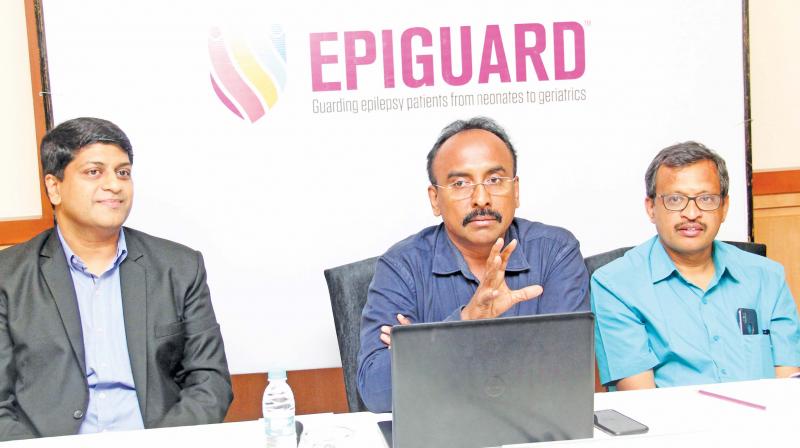Coimbatore: Epilepsy among kids high in Kovai
l With 70 million people worldwide affected with epilepsy, it is regarded as one of the most common neurological diseases globally.

Coimbatore: The textile city has witnessed a rise of two to three per cent in the number of children suffering from epilepsy. There are approximately 58,000 people suffering from epilepsy in Coimbatore, Dr K Vijayan, neurologist from Royal Care Super Specialty Hospital said at a media interaction organised here on Tuesday.
Agreeing with him is Dr TCR Ramakrishnan pediatric neurologist from KG Hospital who added, "there are approximately 20,000 children with epilepsy in Coimbatore region."
"Timely diagnosis and the right treatment can help 80 per cent of patients lead a normal life. If managed appropriately, 98 per cent of women suffering with epilepsy can have a normal healthy child." Dr Vijayan said.
Unlike diabetes and hypertension, where a patient needs to take medication throughout their lives, epilepsy may not require lifelong medication. However, medical experts caution that patients should necessarily take doctors advice before modifying or stopping prescribed medications.
There are several myths associated with epilepsy. However, children suffering from the condition can live a normal life. "In my experience, 90 per cent of children with epilepsy can undergo education in a normal school setting without special provisions, if the condition is managed well," Dr Ramakrishnan said.
Epilepsy is a chronic non-communicable disorder of the brain affects people of all ages with nearly 80 per cent of people with epilepsy (PWE) living in low-and middle-income countries. "Epilepsy is a disease of the brain characterised by recurrent seizures, which are brief episodes of involuntary movement that may involve a part of the body (partial) or the entire body (generalised). Seizures are sometimes accompanied by loss of consciousness and control of bowel or bladder function. Epilepsy can be caused by neuroinfections such as meningitis, neurotrauma such as brain or spinal cord injury, stroke or idiopathically, spontaneously and without known cause," Dr J. Karankumar associate medical director at Abbott told press. Seizure episodes are a result of excessive electrical discharges in a group of brain cells and can vary from the briefest lapses of attention or muscle jerks to severe and prolonged convulsions. From patient to patient seizures can also vary in frequency, from less than one per year to several per day, experts noted.

